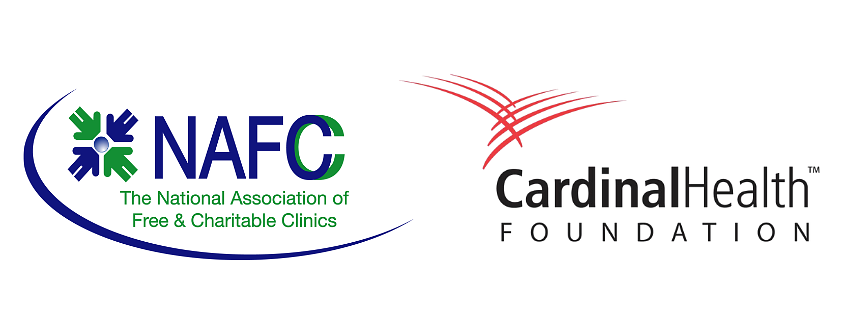
Equity Rx Expansion Brings Affordable Medication Closer to Underserved Communities
A $1.6 million investment is expanding the Equity Rx program, providing critical access to prescription medications for uninsured and underinsured patients across seven states. The initiative aims to improve health equity and reduce disparities.
Equity Rx Expansion Brings Affordable Medication Closer to Underserved Communities
ALEXANDRIA, VA & DUBLIN, OH – November 05, 2025 – The National Association of Free & Charitable Clinics (NAFC) and the Cardinal Health Foundation are significantly expanding their collaborative ‘Equity Rx’ program, injecting $1.6 million in grants to nine clinics and pharmacies across seven states. This expansion represents a pivotal step in addressing the pervasive issue of medication access for uninsured and underinsured populations, aiming to bridge a critical gap in healthcare equity.
Addressing a Growing Health Equity Gap
Millions of Americans face an agonizing choice: pay for life-saving medication or cover basic necessities like food and housing. This dilemma underscores a deep-seated health equity problem, where financial barriers prevent access to essential healthcare. Data reveals that approximately 29% of individuals are unable to fill needed prescriptions due to cost, leading to worsening health outcomes and increased healthcare costs in the long run. The problem is not merely individual hardship; it’s a systemic failure to ensure equitable access to care. “The inability to afford medication is a silent epidemic, disproportionately affecting vulnerable communities,” says one healthcare provider working with underserved populations. “We see patients rationing doses, skipping refills, and ultimately experiencing preventable complications.”
The Equity Rx program is designed to directly confront this challenge by providing financial support and resources to free and charitable clinics, enabling them to dispense medications and offer comprehensive medication therapy management services. These clinics serve as a lifeline for individuals who have nowhere else to turn, providing care regardless of their ability to pay.
The Equity Rx Model: A Collaborative Approach
The Equity Rx program distinguishes itself through its collaborative model, bringing together the NAFC’s network of free and charitable clinics, the Cardinal Health Foundation’s financial support, and local pharmacies committed to serving underserved communities. The initial pilot program in Ohio demonstrated the effectiveness of this approach, achieving remarkable results in medication adherence and patient outcomes. The program’s success stems from a holistic approach that goes beyond simply providing medication.
“It’s not just about getting the medication into the patient’s hands,” explains a pharmacist involved in the program. “It’s about ensuring they understand how to take it, addressing any concerns they may have, and monitoring their progress to ensure the medication is effective.” The program's model emphasizes patient education, counseling, and ongoing support, fostering a trusting relationship between patients and healthcare providers. The nine organizations receiving grants in this expansion phase include: The Good Samaritan Health Center (Atlanta, GA), Will-Grundy Medical Clinic (Joliet, IL), Cape Fear Clinic (Wilmington, NC), The Charitable Pharmacy of Central Ohio (Columbus, OH), Community Volunteers in Medicine (West Chester, PA), Volunteers in Medicine (Wilkes-Barre, PA), Clinica Esperanza/Hope Clinic (Providence, RI), Siloam Health (Nashville, TN), and NOVA ScriptsCentral (Falls Church, VA).
Proven Impact and Future Goals
The results from the initial pilot program and the early stages of the expansion are promising. Participating clinics have reported medication adherence rates soaring to 75-90%, a significant improvement from baseline rates that were as low as 30%. Over 11,100 patients have already benefited from the program, receiving over 145,000 prescriptions and participating in over 170 Medication Therapy Management (MTM) sessions. “We’ve seen a dramatic improvement in our patients’ health,” says a clinic administrator involved in the program. “They’re able to manage their chronic conditions more effectively, avoid hospitalizations, and live healthier, more productive lives.” The Cardinal Health Foundation has committed a total of $5 million to the Equity Rx program, demonstrating its long-term commitment to addressing health equity. The program's ambitious goal is to dispense 1 million prescriptions by 2030, reaching even more individuals in need.
While the Equity Rx program is a significant step forward, it operates within a larger landscape of initiatives designed to improve medication access. Patient Assistance Programs (PAPs) offered by pharmaceutical companies and state-run programs provide crucial support, but often come with complex eligibility requirements and bureaucratic hurdles. The Equity Rx program differentiates itself through its direct focus on free and charitable clinics, providing a streamlined and patient-centered approach to medication access. “The strength of this program lies in its ability to reach those who fall through the cracks of other systems,” says one healthcare advocate. “It’s about providing compassionate, accessible care to those who need it most.”
The program's success highlights the importance of collaborative partnerships and innovative solutions in addressing the complex challenges of healthcare equity. As the Equity Rx program continues to expand, it serves as a model for other communities seeking to improve access to affordable medication and create a more equitable healthcare system.
